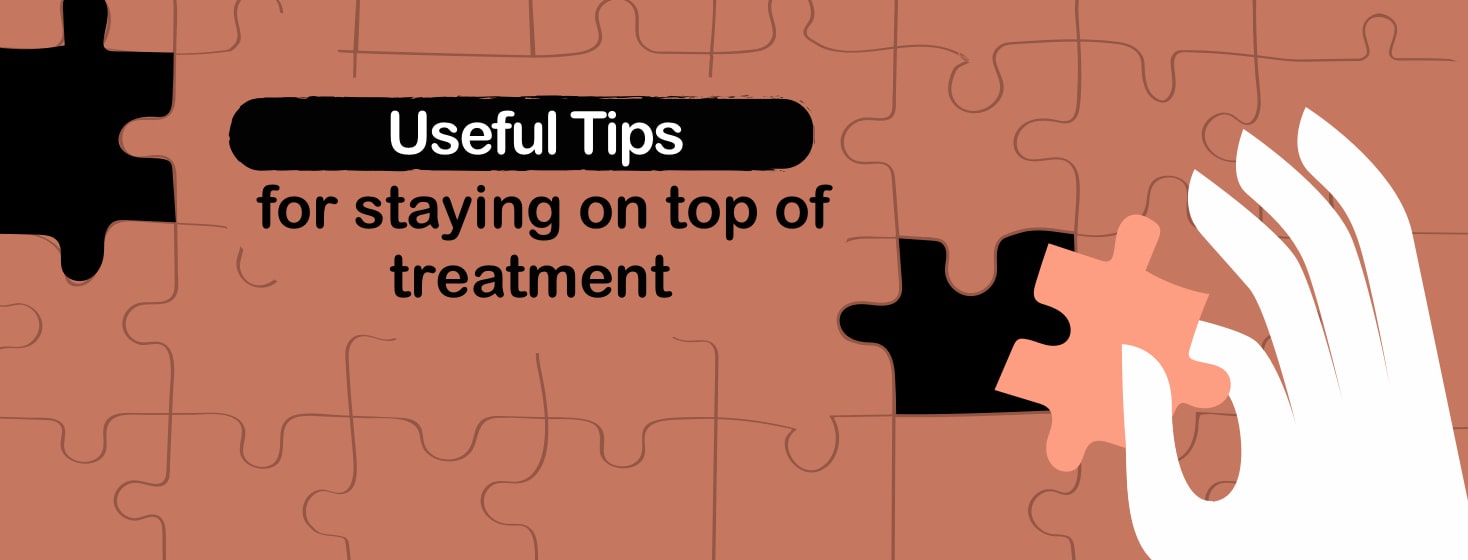6 Tips for Staying on Top of Treatment
Living with a long-term health condition requires us to stay on top of everything: doctor’s appointments, new symptoms, insurance, and, of course, managing treatment – all while taking care of everyday responsibilities!
Often, we are told to take medicine as prescribed or to follow the treatment plan. But what if that is not always possible? In our 2021 Managing Treatment and Medication Survey, we asked more than 1,900 people living with various long-term health conditions about their treatment experience.
Take our short quiz to see how you compare, and keep reading to learn about a few tips to stay on top of medication and treatment!
Quick Quiz
Of those who took the survey, the most common room in the home to store medications was:
Quick Quiz
What did survey takers say was the most preferred way to take medicine?
Quick Quiz
Survey takers expressed this as the top challenge with taking medicines as prescribed:
Quick Quiz
Two out of 3 people faced hardships taking their medicines last year. What was the most common complaint amongst people who took our survey?
6 tips for staying on top of treatment
Sometimes, we simply forget to take our medications! It happens! Here are a few tips to consider when trying to get better at staying on track with medications and treatment.1-3
1. Keep a calendar. If you are on an infusion schedule, keep a calendar of your infusion dates. If your infusion center does not schedule your infusions for you, a calendar can help you remember your next infusion date.
2. Talk with your doctor and healthcare team. Do you have questions about medications or the side effects of treatment? With your doctor, come up with a plan on how to address side effects or about switching medications (if it is an option).
3. Use a pill container. Some types have sections for multiple doses at different times throughout the day, such as in the morning or at night.
4. Talk with your pharmacist. If you are having trouble remembering medications, opening pill bottles, or viewing small print, talk with your local pharmacist. They have reminder tops – caps with reminder alarms – for your medications. They may also be able to fit your pill bottles with caps that are easier to open.
5. Have reminders or leave yourself notes. For some, having reminders can be a helpful way to stay on track with our treatment. Put sticky notes in areas of the home that you frequent, like the bathroom, kitchen, or nightstand next to your bed. Keep your medication bottle in plain sight as a visual reminder. Set an alarm on your phone, tablet, or watch.
6. Store medication properly. Know the proper ways to store your medicines. Certain medications, like injectables or topical creams, may need to be stored in your refrigerator or kept out of direct sunlight. If you are not sure, check with your doctor or local pharmacist.
What other tips can you share in remembering medicines or staying on top of treatment? Share in the comments below!
The Managing Treatment and Medication Survey was conducted online from August through September 2021. The survey was completed by 1,945 people who were diagnosed with a long-term health condition and currently used at least 1 prescription or over-the-counter medication.

Join the conversation